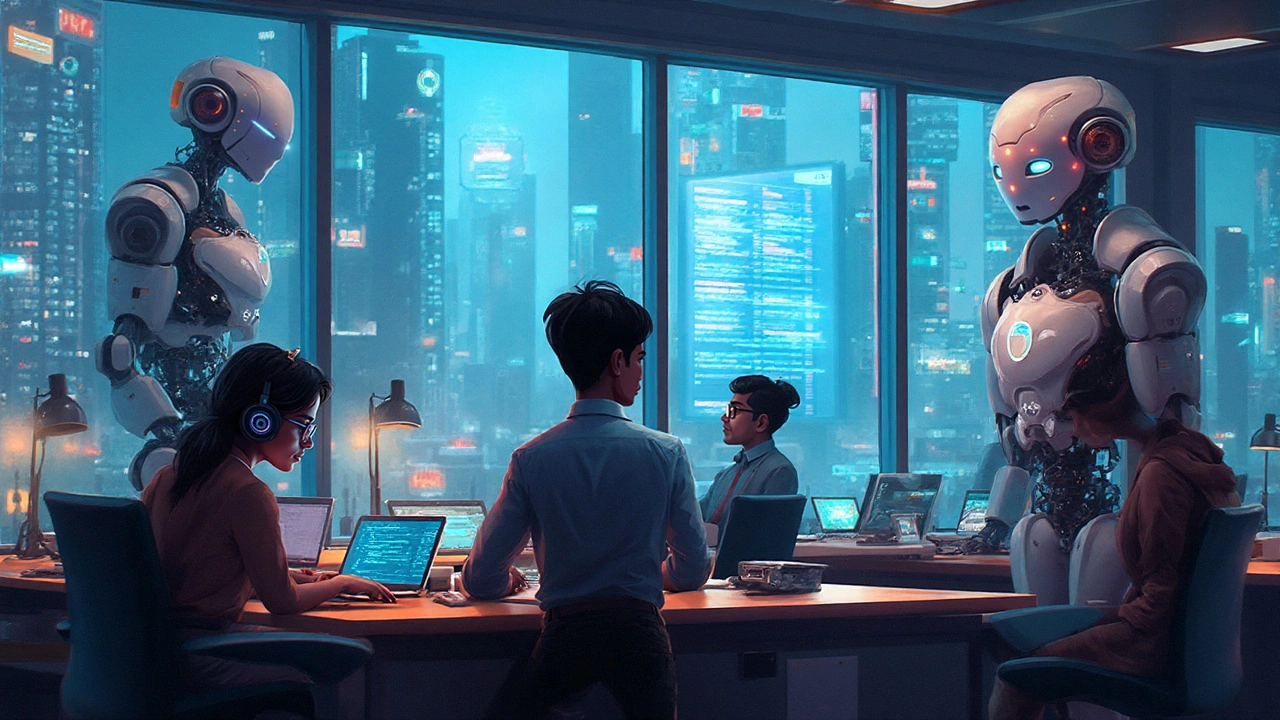AI Replacing Programmers – What You Need to Know
When working with AI replacing programmers, the trend of AI systems taking over coding tasks traditionally done by human developers. Also known as AI-driven code automation, it signals a shift in how software is built. Artificial Intelligence, a field focused on machines that can learn and make decisions powers this shift, feeding models that can write, test, and refactor code. The rise of Copilot, an autocomplete assistant trained on billions of lines of code and similar AI coding tools shows how automation is moving from IDE plugins to full‑stack development assistants. This ecosystem creates a clear semantic triple: AI replacing programmers encompasses automation of routine coding tasks, while AI replacing programmers requires AI coding tools. The result is a new workflow where developers spend less time on boilerplate and more on architecture, testing, and creativity.
How Freelance Developers Feel the Impact
Freelance web development, a sector that thrives on flexibility and niche expertise, feels the pressure of this automation wave. Independent coders often rely on speed and cost‑effectiveness, so AI assistants become both a competitive edge and a threat. When a freelancer adopts an AI tool, they can deliver projects faster, which can attract more clients but also compress rates. On the flip side, clients start expecting higher quality without paying premium prices, because the AI has already handled the grunt work. This creates another semantic connection: Freelance web development influences AI adoption rates. To stay relevant, freelancers are pivoting toward tasks AI struggles with—complex system design, user experience nuances, and strategic consulting. Upskilling in prompt engineering, AI‑enhanced debugging, and low‑code integration becomes essential, turning a potential job risk into a new service offering.
The future of programming isn’t about AI wiping out human coders; it’s about partnership. As AI coding tools improve, developers will need to master prompt crafting, model evaluation, and ethical considerations around generated code. Companies are already building hybrid teams where AI drafts code and senior engineers review and adapt it, cutting time‑to‑market while preserving quality. This dynamic establishes the third semantic triple: AI-driven code automation influences the future of programming careers. For those watching trends, the key takeaway is clear—embrace AI as a collaborator, not a competitor. Below you’ll find a curated set of articles that break down the tools, the market impact, and practical steps you can take today to future‑proof your coding career.
Will Artificial Intelligence Replace Programmers by 2045? The Unfiltered Truth
- Jaxon Millwater
- Tech Careers
- 0 comment
Explores whether AI will take over programming jobs by 2045. Cuts through the hype to reveal what coders need to know about automation, career changes, and real-world impacts.
VIEW MORECategories
- Responsive Web Design (14)
- Tech Careers (13)
- SEO for Web Developers (12)
- UX UI Design (12)
- PHP Development (11)
- Web Development Courses (11)
- JavaScript (9)
- Ecommerce Websites (9)
- Web Development Frameworks (8)
- Full Stack Development (8)
Popular posts
-
How to Host a Website for Free: The Definitive 2025 Guide
Jaxon Millwater -
UX vs UI: Which Design Discipline is More Challenging?
Jaxon Millwater -
What UI/UX Designers Actually Do: Roles, Skills, and Daily Tasks
Jaxon Millwater -
Python or PHP: Which Is Better for PHP Development?
Jaxon Millwater -
First Responsive Website: How 'Responsive Web Design' Started the Revolution
Jaxon Millwater
